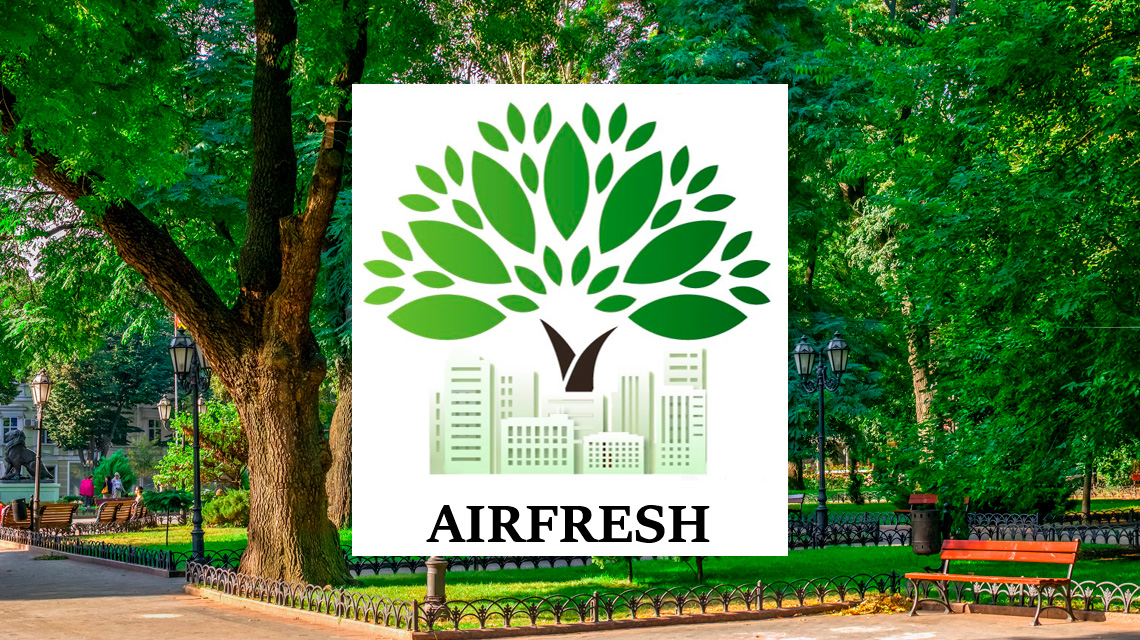Italian National Agency for New Technologies, Energy and Sustainable Economic Development

Environment: Pollution, urban forestry project "Airfresh" is underway
Approximately 600 trees have been planted in Florence and Aix-en-Provence, in south-eastern France, thanks to the European AIRFRESH project- which includes ENEA and the Research Institute on Terrestrial Ecosystems of the Cnr[1] for Italy- and whose goal is to estimate the ability of a reforested peri-urban area to improve urban air quality, help reduce urban heat island effects and stormwater runoff during extreme weather events.
Air pollution and heat islands are two of the main problems harming our cities and posing a major threat to public health, with an estimated half a million premature deaths in Europe and an overall cost of around €644 billion. And the future looks grim: according to official projections the death toll from air pollution could double by 2050.
Mediterranean cities will be most affected due to the combined effect of the increase in temperature (+2 -5°C on a regional scale and up to +7°C in cities by 2100) and air pollution, as already proved by the two heat waves and the pollution peaks recorded in the summer of 2019 and, in general, from 2000 onwards throughout Europe.
“The adverse environmental events occurred that summer have raised public authorities' awareness of the urgency of implementing mitigation and adaptation measures and, above all, has opened the door to experimenting with new ways of planning and managing peri-urban forests, as shown by Milan with 3 million trees planted by 2030, the south of France with 1 million new trees and our urban reforestation project”, explained De Marco.
In 2019, 95% of the population of Florence and Aix-en-Provence was exposed to levels of PM10, nitrogen dioxide (NO2) and ozone (O3) above the limits established by the World Health Organization for human health protection, causing 167 premature deaths in the Tuscan capital and 73 in the French city. Furthermore, in both cities there were respectively 700 and 309 hospitalizations for cardiovascular and respiratory diseases. In the last 20 years the temperature of the Tuscan capital has risen by 0.3-1.0°C and this increase could reach +1.5-3.7°C by 2100. Aix-en-Provence, on the other hand, it’s the third most polluted city in France and by 2100 the average annual temperature is expected to increase by +1.9-4.6°C and up to 5.7°C in summer (in the summer of 2019 the temperature was + 3.5°C compared to nearby cities)[2].
“Once the tree planting phase is complete, we will conduct measurement campaigns of atmospheric pollutants concentrations and temperature and humidity values, both in reforested areas and in neighboring ones, to determine if the expected outcomes are achieved.
The findings will enable us to draw guidelines to maximize environmental and public health benefits of urban reforestation. Local administrators will have concrete indications on planting and maintenance of green areas and an appropriate selection of tree species suitable for their urban context, to avoid the occurrence of other issues like the release of biogenic volatile organic compounds ( BVOC) which lead to ozone formation, an increase in pollen causing allergies and additional tree pruning costs”, said the researcher.
In addition to the two pilot cities for the experimental part, the AIRFRESH project will model the concentrations of pollutants also in Zagreb (Croatia) and Naples, to obtain information on urban contexts presenting different geographical and orographic conditions.
Photogallery
Notes
[1] The organization ARGANS (coordinator) and AIR Climat participate for France
[2] https://www.life-airfresh.eu/test_areas#frontrunner_cities
